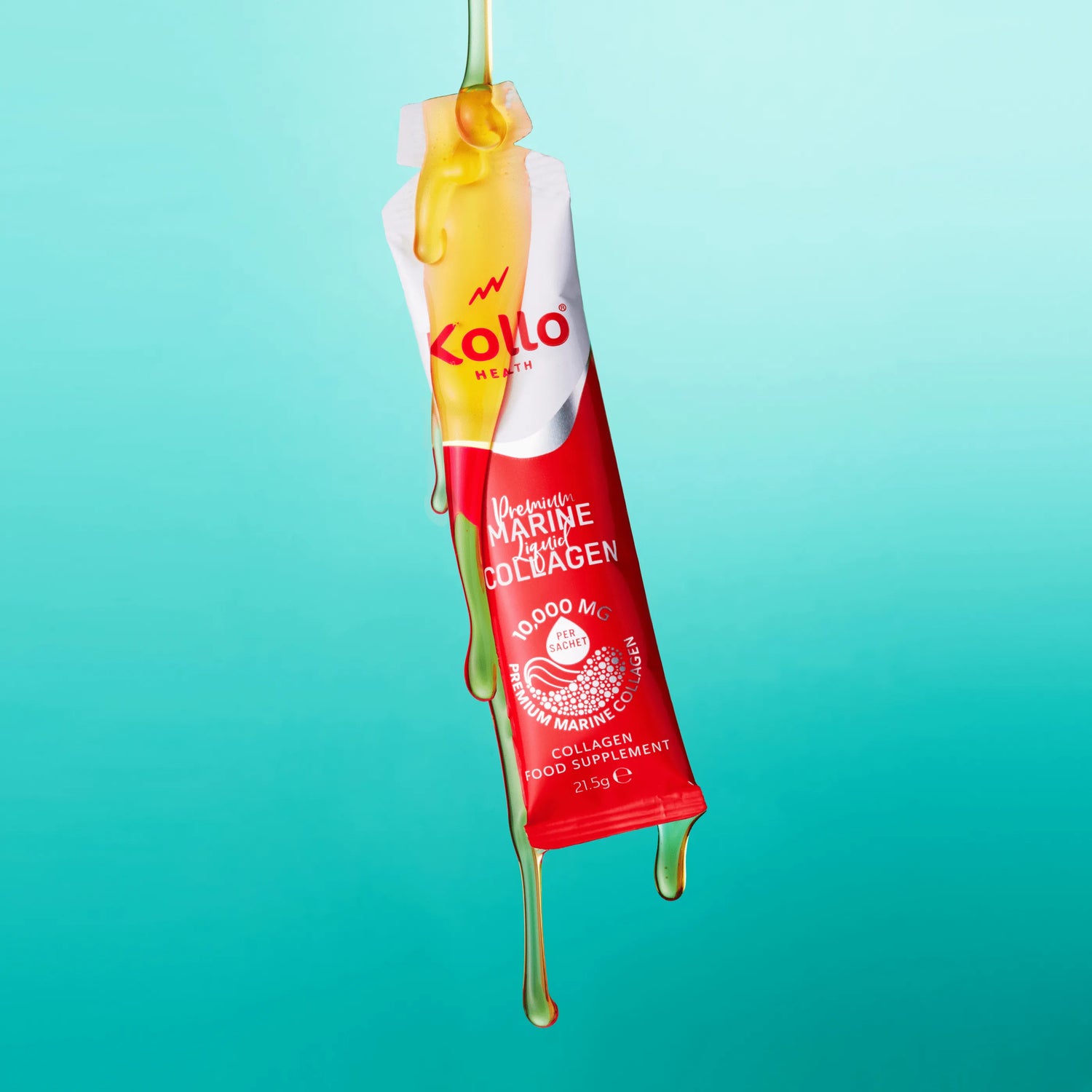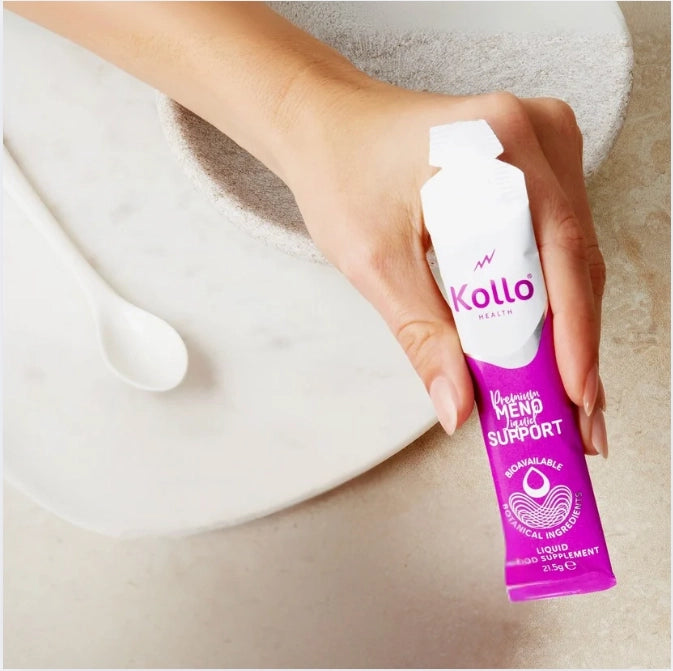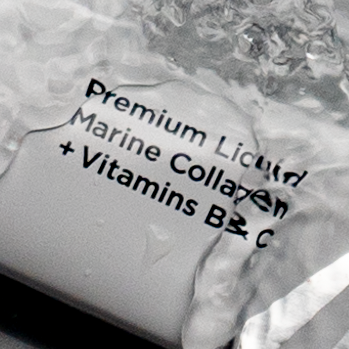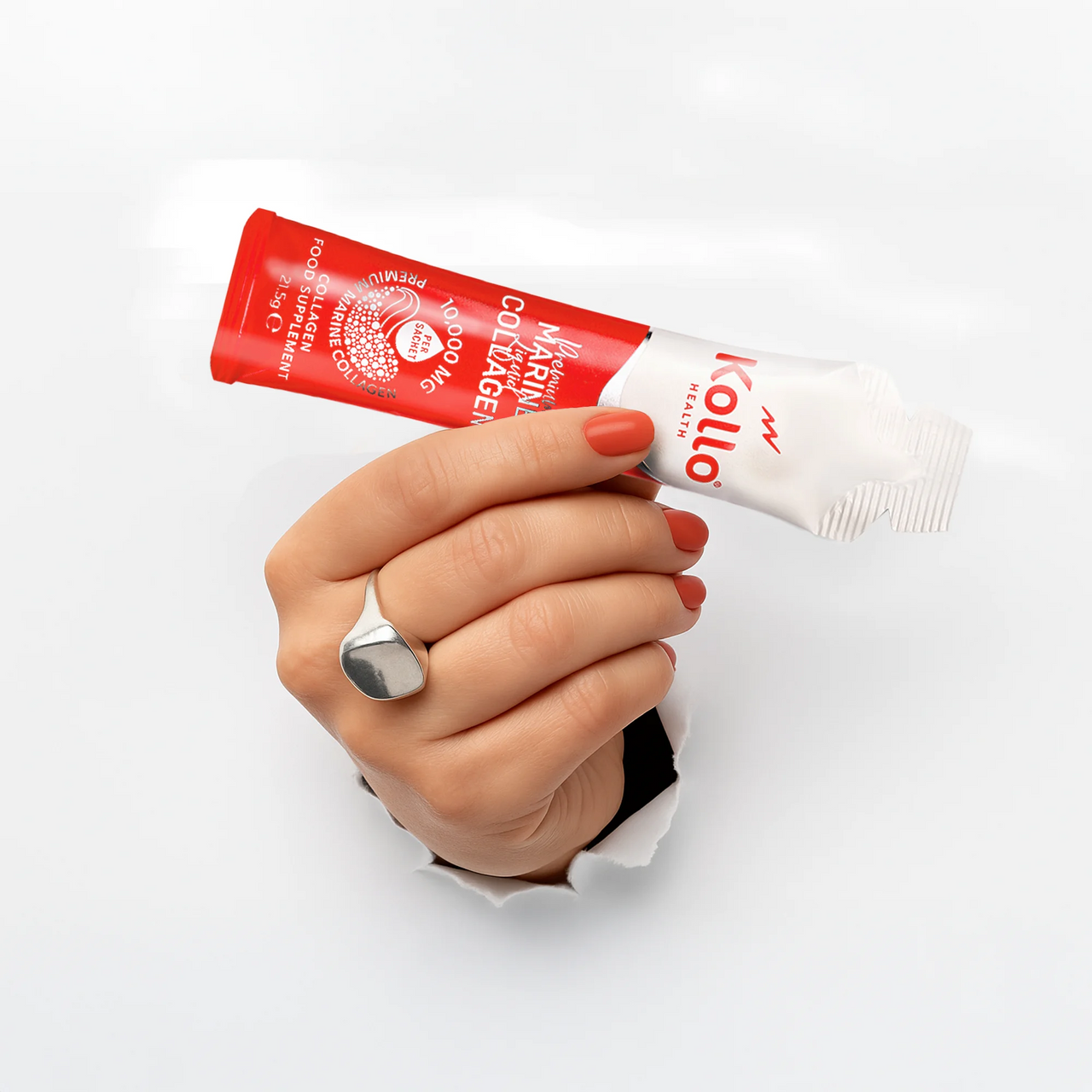What’s the difference between marine collagen peptides vs hydrolysed collagen?
Marine collagen peptides or hydrolysed collagen? These are interchangeable names for the same product. There is no difference between the two; it’s just a matter of semantics. But why are there two different names for the same thing in the collagen industry?
In this article, we will explore the roots of where these two names come from. Essentially, the phrase ‘collagen peptides’ is a description of the end product, whereas ‘hydrolysed collagen’ is a description of the process by which we create collagen peptides. It is comparable to a product like wheat flour:
-
The name ‘wheat flour’ is what we call the end product.
-
You could also call it ‘ground wheat’ as an alternative name that encapsulates the grinding process.
So the short answer is that ‘hydrolysed collagen’ is simply another way of saying ‘collagen peptides’. We call them marine collagen peptides when they come from the skin and scales of fish.
So should I say marine collagen peptides and hydrolysed collagen?
There is no wrong answer here. Collagen peptides and hydrolysed collagen are both names for the same product.
The peptides used in collagen supplements originate from large collagen molecules in fish skin and scales. Alternatively, they can come from the bones of cows, pigs and other animals. We extract these peptides and break them down via hydrolysis. They are the key bioactive component of the supplements. You could argue that ‘collagen peptides’ makes the most sense to use. It is these bioactive and highly bioavailable peptides that absorb into the body. Subsequently, this causes the various health and cosmetic benefits of taking collagen supplements.
What is collagen, exactly?
Collagen is a fundamental structural protein that exists in the skin, bones and tissues of animals. In essence, it is what holds the body together. It provides structure, strength cohesion and elasticity to:
-
Skin
-
Bones
-
Tendons
-
Ligaments
-
Cartilage
-
Muscles
There are various different types of collagen in the body. Type I collagen consists of long, neatly packed fibres that provide tensile strength for the skin as well as tendons and ligaments. Type II collagen, meanwhile, contains shorter fibres that help make up the cartilage. This tissue acts as a shock absorber between bones in many of the body’s joints. All types of collagen perform essential roles in maintaining good health in the body.
As we age, our bodies produce less and less collagen – this can start as early as our twenties). The result of this is the signs of ageing. These become particularly pronounced in middle age and beyond.
We will experience visible issues like wrinkles and fine lines in the skin or thinning of the hair. There are also less visible ones like stiff, aching joints and even a decrease in bone density. This all happens largely because we have less collagen to provide the structural support to the very fibres of our bodies.
The collagen that goes into marine collagen peptides comes from fish, primarily the skin and scales. But it can also come from the skin and bone of animals like cows and pigs to form gelatine. Peptides can be developed from this substance via hydrolysis.
Hydrolysation: what exactly are bovine, porcine and marine collagen peptides?
Collagen peptides are short chains of amino acids derived from full-length collagen. The molecules of native collagen are quite large. In fact, they are too large for the human digestive system to absorb into the bloodstream efficiently. This is why we use enzymatic hydrolysis to extract the collagen. It breaks down those large molecules into the smaller, more bioavailable collagen peptides. These can absorb into the bloodstream to provide the fuel our bodies need to ramp up collagen production.
So the native collagen must go through a softening process to release the marine collagen peptides from their bonds. A collagen molecule consists of three long chains of amino acids. These combine to form a triple helix with a substantial molecular weight. The collagen peptides in supplements are part of an insoluble and very robust matrix of collagen fibres.
The process of enzymatic hydrolysis involves the application of a specific enzyme. This occurs after the collagen reacts with water. This process breaks down the peptide bonds to enable the extraction of the individual peptides. The degree of this hydrolysis dictates the average molecular weight of the final product. Kollo Health uses marine collagen peptides broken down enough for maximum bioavailability. This means it is very easy for the digestive system to absorb the key nutrients into the bloodstream.
The hydrolysis process is subject to strict control. This ensures a consistent end product that can be accurately reproduced.
What are the benefits of marine collagen peptides (hydrolysed collagen)?
Marine Collagen peptides are bioactive ingredients. This means that, once they pass into the bloodstream, they have an influence on the activity of various cells in the body. One scientifically proven effect is that hydrolysed collagen can stimulatem skin fibroblasts. Consequently, they will produce more hyaluronic acid. This is important for healthy skin hydration.
Bioactive collagen peptides can also assist in the repairing of damaged tissue in the body. This includes:
-
Structural support for the skin
-
Maintenance of healthy bone density
-
Contributing to strong, voluminous hair
This is why collagen supplements are so popular in the cosmetic, health and fitness industries.
Here are some of the benefits you can experience from consuming marine collagen peptides from Kollo Health:
Improved join health
There are various scientific studies into this. They demonstrate that hydrolysed collagen supplements can be beneficial for the health of our joints. They can help reduce inflammation around joints and protect the cartilage against degradation.
As a result, people with joint conditions and those of us with age-related aches and pains can benefit. These people may experience improvements in mobility and comfort in their joints.
Reduction in the signs of skin ageing
One of the most popular uses of collagen peptides is to slow the visible signs of ageing. Think sagging skin, fine lines and wrinkles.
There has been lots of research into the ability of hydrolysed collagen to aid in skin beauty. The results have shown that the health benefits are available for people of different ethnicities and varying skin types. It can take as little as two months to see the benefits.
Bone density
Bone health is very important, particularly as we get older. When women go through the menopause, the reduction in oestrogen can cause collagen levels to drop. Bones contain a lot of collagen and calcium salts. Consequently, that drop in collagen levels can cause bone density to decrease, leaving bones more prone to breaking.
Collagen peptides have shown themselves to boost the bone remodelling process. This can help maintain bone density. In fact, a recent study found that peptide supplementation can influence bone cell metabolisation on many levels. This will help the body maintain its bone strength.
Sports recovery
Many athletes, bodybuilders and fitness enthusiasts use collagen peptides. They help to recover faster from workouts and training. During strenuous activity, the fibres of our muscles become strained. Subsequently, we get micro-tears that need time to heal, thereby strengthening the muscles.
Protein is essential for the repair and strengthening of muscle tissue. Collagen peptides include many of the amino acids required to achieve this. As such, they can reduce recovery time to help you get back to training and improving performance.
The bottom line
Whether you call them marine collagen peptides or hydrolysed collagen, one thing is certain. The contents of high-quality marine collagen supplements have many science-backed benefits for your health, beauty and fitness.
They are different names for the same thing. That thing is something that has revolutionised the way we think about keeping healthy in the modern age.
Would like to learn more about how Kollo Health makes the best use of collagen peptides to ensure you get the maximum health benefits? We invite you to check out these clinical studies and explore elsewhere on our website.
If you have any further questions about Kollo or collagen supplements in general, you may find answers on our blog. Alternatively, you can always contact us to get some answers.







